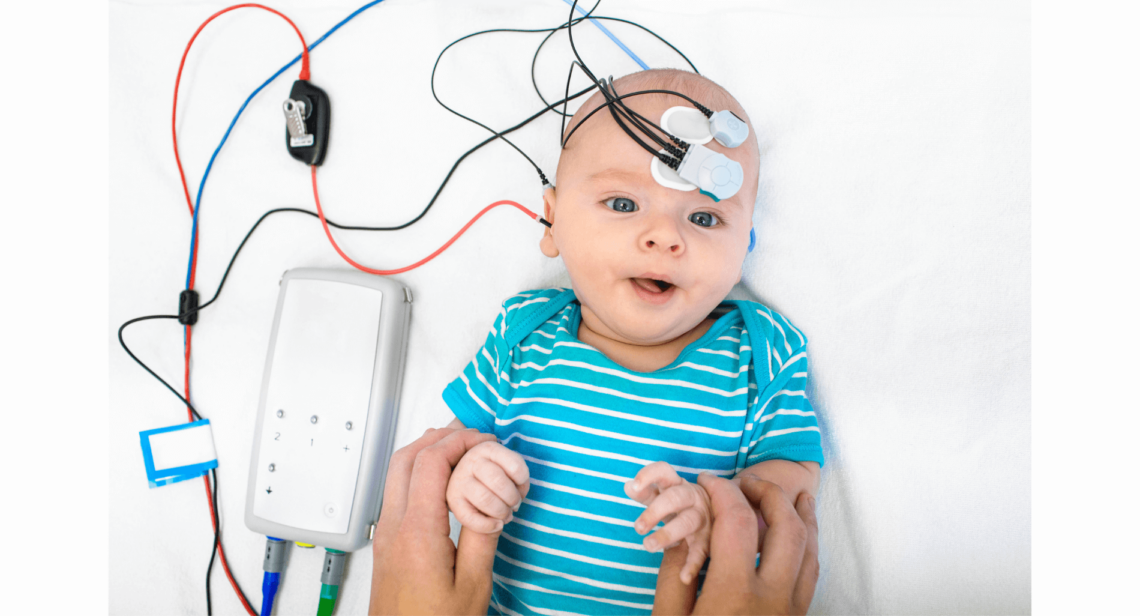Hearing loss in children is more common than you might think. As a parent, it’s important to watch for signs of hearing loss in your little one. Treating hearing loss as soon as possible will help them learn along with their hearing peers and enjoy their life to the fullest.
Prevalence of Pediatric Hearing Loss
According to the Centers for Disease Control and Prevention (CDC), around 2 to 3 children per 1,000 are born with detectable hearing loss in one or both ears. The impact of untreated hearing loss in children can extend beyond communication challenges, affecting cognitive, social, and emotional development. Children can also develop hearing loss in the first few years of life, caused by illness, injury, or exposure to loud noise.
Types of Hearing Loss
Pediatric hearing loss can be categorized into three main types: conductive, sensorineural, and mixed. Conductive hearing loss involves issues with the ear canal or middle ear, sensorineural involves damage to the inner ear or auditory nerve, and mixed involves a combination of both.
The Causes of Pediatric Hearing Loss
Some children are born with hearing loss due to genetic factors, infections during pregnancy, or complications at birth. Genetic factors play a significant role, with approximately 50% of congenital hearing loss having a genetic basis.
Children can also develop hearing loss after birth due to factors such as recurrent ear infections, exposure to loud noises, head injuries, and certain medications. Timely identification and addressing these factors are essential to prevent further deterioration of hearing.
Early Signs and Symptoms
Recognizing the signs of hearing loss in children is crucial for early intervention. Common indicators include delayed speech and language development, difficulty following directions, turning up the volume excessively on electronic devices, and limited responsiveness to sounds.
Newborn Hearing Screening
The implementation of newborn hearing screening programs has significantly improved the early detection of hearing loss. These screenings, usually conducted before leaving the hospital, enable early identification and intervention for children at risk of hearing impairment.
Regular Pediatric Check-ups
Routine pediatric check-ups play a vital role in monitoring a child’s hearing health. Healthcare professionals assess developmental milestones, conduct hearing screenings, and provide guidance on further evaluation if needed.
Parent’s Role in Supporting Children with Hearing Loss
Parents play a pivotal role in creating environments that support a child with hearing loss. Simple adjustments, such as reducing background noise, using visual cues, and maintaining eye contact during communication, can enhance a child’s ability to engage with their surroundings.
For children with hearing loss, educational support is essential for academic success. Parents should collaborate with teachers and educational professionals to implement accommodations, such as preferential seating, the use of assistive listening devices, and access to speech therapy services.
The Educator’s Perspective
Educators can sometimes be the first to notice signs of hearing loss in children. Observing a child’s behavior, responsiveness, and academic performance can provide valuable insights into hearing health or hearing loss. Prompt communication with parents and collaboration with support services are crucial steps in facilitating the child’s learning journey.
Creating an inclusive learning environment involves adopting teaching strategies that cater to diverse learning needs. This may include using visual aids, incorporating technology, and providing additional support to ensure children with hearing loss can fully participate in classroom activities.
Seeking Professional Guidance
Timely hearing tests by qualified hearing health specialists are integral to understanding the extent and nature of a child’s hearing loss. These assessments help formulate personalized interventions and support strategies tailored to the child’s unique needs.
Interventions for pediatric hearing loss vary based on the type and severity of the hearing loss. Options include hearing aids, assistive listening devices, cochlear implants, speech therapy, and educational support services. Early intervention significantly improves outcomes, enabling children to develop essential communication skills.
Does Your Child Have Hearing Loss?
Navigating hearing loss in children requires a collaborative effort from parents, educators, and healthcare professionals. Early detection, understanding the causes, and implementing appropriate interventions are vital components of fostering a supportive environment for children with hearing impairments.
If you think your child has hearing loss, book a hearing test to find out more. The hearing test can tell you what sounds your child is missing, and it’s an important first step in finding the right treatment options.

